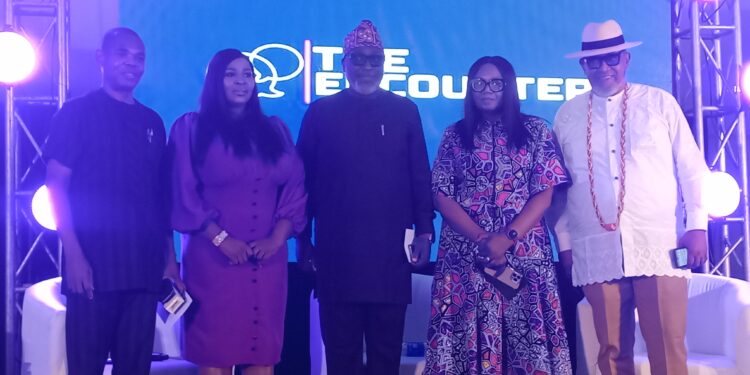![]()
By Adejola Adeyemi Crown
The 2025 Unified Tertiary Matriculation Examination (UTME) crisis has triggered a fresh wave of debate over the future of Nigeria’s digital examination system, with the tenure of the Registrar of the Joint Admissions and Matriculation Board (JAMB), Professor Is-haq Oloyede, now in sharp focus.
The conversation took centre stage at the 2025 edition of The Encounter symposium, hosted in Lagos on Saturday by Veteran Broadcaster and National News Coordinator at Silverbird Television, Seun Oyedeji ‘Jewel’.
The event, themed “Deploying ICT Towards Educational Development,” gathered education stakeholders, ICT experts, school administrators, parents, and students for a no-holds-barred dialogue on the state of education in Nigeria.
A major point of contention was the technical collapse that marred this year’s UTME, affecting 379,997 candidates across 157 centres—mostly in Lagos and the South-East.
Educationist Dr. Peter Oguduro and several parents openly called for Professor Oloyede’s resignation, blaming poor planning and digital unpreparedness.
“This is more than a technical error. It is a failure of leadership, and someone must be held accountable,” Oguduro declared at the symposium.
However, some participants rallied in Oloyede’s defence. Veteran Broadcaster, Patrick Doyle described him as “a reformer who brought transparency and accountability to JAMB,” urging critics not to “throw away the baby with the bathwater.”
Doyle’s view was supported by ICT specialist Dr. Abisodun Durosinmi-Eti and education advocate Mrs. Yinka Ogunde, who called for a more holistic assessment of the situation.
Mrs. Ogunde, who also serves as the CEO of Edumark Consulting, noted that the crisis reflects a deeper problem within the country’s educational ecosystem.
“Good grades are no longer enough to stand out in today’s reality.”
“There’s a pressing need to restructure the university admissions framework entirely—not just focus on JAMB,” she noted
She added that while ICT is undeniably the future, most public schools in Nigeria lack the basic infrastructure to support digital examinations.
“We are talking about a computer-based test in communities where there is no stable electricity or internet. This is why policy must be reviewed urgently.”

Some experts at the forum suggested that JAMB adopt a dual-mode examination format, combining both computer-based testing and the traditional pen-on-paper model, particularly in under-resourced and disadvantaged areas.
“Equity in education requires that we don’t abandon students who are not digitally connected,” one participant stressed.
Aside from the heated discussions, the symposium also featured an inter-school debate where students from five schools tackled the topic, “Is the Impact of ICT on Educational Development Overrated or Not?” The contest offered a platform for the youths to weigh in on issues that directly affect their academic journey and future.
The symposium marked a personal milestone for Mrs. Oyedeji, as it coincided with her birthday. With over 20 years in broadcasting, she used the occasion not just to celebrate but to champion what she described as “purpose-driven journalism and informed discourse in nation-building.”
“The Encounter is not just an event—it’s a national movement to reshape education through collaboration and critical engagement.”
“We can’t build a future on broken systems. It’s time for policies that work.” Oyedeji said in her closing remarks.

























